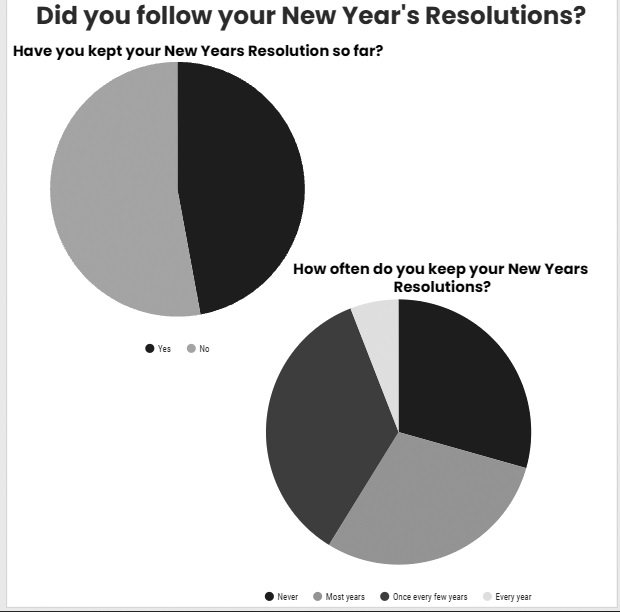
“New year, new me” – a phrase you’ve probably heard a thousand times this year. Humans naturally strive for change and improvement, and what better time to usher in personal change than the new year?
While it may be tempting to follow the trend and wait for the new year to make a change, old habits are hard to shake off, and waiting will worsen this. But there are good ways to change your habits in a sustainable way.
Though this change rarely lasts long, New Year’s resolutions are nevertheless a common practice during the early months of the new year. It’s time to acknowledge that, in their current form, New Year’s resolutions are not viable methods to make key changes.
According to data gathered by workout app Strava, a large majority of people have given up on their new year’s resolutions by the second week of February, with Jan. 19 unofficially dubbed “quitter’s day.”
This information leads some to rightfully believe that New Year’s resolutions are a waste of time. According to a CBS report, in 2022, only 29% of Americans say they are making a resolution, compared to 43% in 2021.
However, it’s important not to discard the concept completely. While flawed, disregarding personal change altogether is a harmful attitude. Starting the new year off working toward a change is a great idea, people have just been doing it wrong and ineffectively.
First off, don’t wait for the new year to make a monumental change. When it comes to any bad habit, think of a way to change it, and put that in practice right away. Procrastination is already a problem, so waiting around for the new year will only make progress harder.
Remember that change is an incremental process. Popular new year’s resolutions may involve removing something entirely, but that’s simply not realistic for most people, and certainly not right away.
A 2012 study conducted by the Journal of Consumer Reports found that focusing on a smaller goal keeps people more motivated to keep pushing toward their bigger goal.
According to Harvard Health Publishing, starting with an easy task and incrementally building up tasks and difficulty encourages people to persevere. Starting small and building up is a better way to find success, despite lacking efficiency.
It’s important to not get discouraged either. In fact, 53% of Roosevelt survey respondents say they have already given up on their 2022 New Year’s resolution, with only 29% reporting that they regularly sustain their goals throughout the year.
Instead of throwing in the towel after one failure, learn to use past mistakes to strive for full, or at least partial, completion.
There are many obstacles that interfere with making a monumental shift in life, and it certainly doesn’t happen overnight, even if that night leads to a new year.
However, New Year’s resolutions seem to ignore this fact, favoring the idea that suddenly, humans can change overnight. This leads many to feel like they have to make a change on New Year’s, and feeling frustrated when they are obviously unable to do so right away.
In my case, I stopped making resolutions years ago, as I always felt dissatisfied with myself for not being able to follow through on them. Instead, I turned to making smaller changes throughout the year, whenever I felt I needed to change. I’ve found much more self-improvement this way, and I encourage others to follow suit.
New Year’s resolutions are theoretically sound, but also risk false hope for quick change, leading to failed aspirations and decreased self-esteem.
